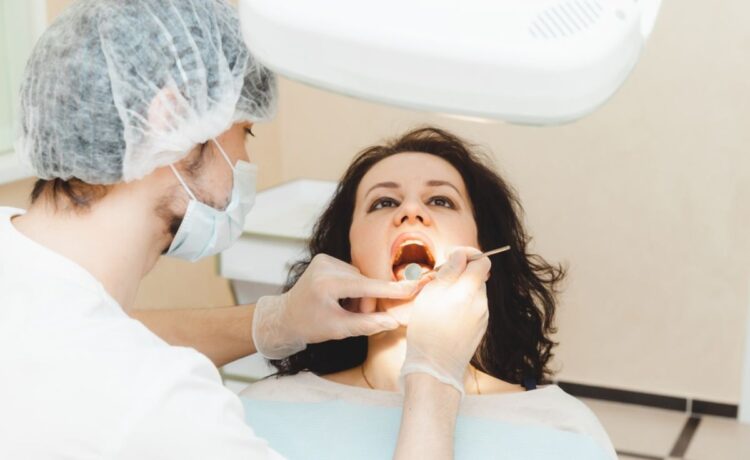You might think dental visits aren’t important if you’re not in pain. That’s not true. Regular visits to Bucks County dentists can find oral health problems before you even feel any discomfort. Early detection is key. Dentists look for signs that aren’t obvious to you. This is like finding a tiny crack in a dam before it bursts. By catching issues early, you can avoid bigger problems later. Gum disease, cavities, and oral cancer can be spotted sooner. This means you might need less treatment, saving you time and stress. You also protect your overall health. Oral health affects your entire body. Heart disease and diabetes are linked to gum issues. So, even if everything feels fine, regular dental check-ups are essential. Be proactive about your health. Don’t wait for pain to make you act. Regular dental visits are your frontline defense against future problems.
The Significance of Early Detection
Early detection in dental care is like a safety net for your health. Problems caught early mean treatments are simpler and less invasive. For example, a small cavity can be filled easily. If left unchecked, it could require a root canal or extraction. This preventative approach saves time and potentially painful procedures.
Here is a comparison of dental issues caught early versus late:
| Condition | Early Detection | Late Detection |
|---|---|---|
| Cavities | Simple filling | Root canal or extraction |
| Gum Disease | Non-surgical cleaning | Surgery or tooth loss |
| Oral Cancer | Less invasive treatment | Extensive surgery, chemo, or radiation |
What Dentists Look For
Your dentist examines your mouth for signs of disease. They look for abnormalities that you might miss. This includes swelling, redness, and unusual patches. They also check for signs of grinding or misalignment. All these observations help catch issues early.
Tools and Techniques
During exams, dentists use various tools to ensure a thorough check-up. Mirrors and probes help examine hard-to-see places. X-rays reveal problems beneath the surface. These tools are crucial for diagnosing issues that are not visible to the naked eye.
For more information on how these tools work, you can visit the Centers for Disease Control and Prevention’s oral health basics page.
Connection to Overall Health
Your oral health is a window into your overall well-being. Issues in your mouth can signal problems elsewhere in your body. For example, gum disease has links to heart disease. By maintaining oral health, you contribute to your overall health.
Benefits of Routine Visits
- Catch cavities early
- Prevent gum disease
- Detect oral cancer signs
Routine visits allow your dentist to monitor changes over time. Consistent care means small shifts are noted, leading to timely interventions. This proactive approach keeps you healthier in the long run.
Actionable Steps
To stay on top of your oral health, follow these steps:
- Schedule regular check-ups
- Brush twice a day with fluoride toothpaste
- Floss daily
- Limit sugary drinks and snacks
These habits, combined with professional care, provide a strong foundation for your dental health. For more tips, you can explore guidelines from the American Dental Association.
Conclusion
Regular dental visits are not just about teeth cleaning. They play a vital role in identifying potential problems early. This preventive care approach ensures minor issues do not turn into major health concerns. By being proactive, you safeguard your health and well-being. Don’t wait for pain to prompt you to take action. Schedule regular check-ups and take simple daily steps to maintain your oral health. It’s an investment in your future well-being.

